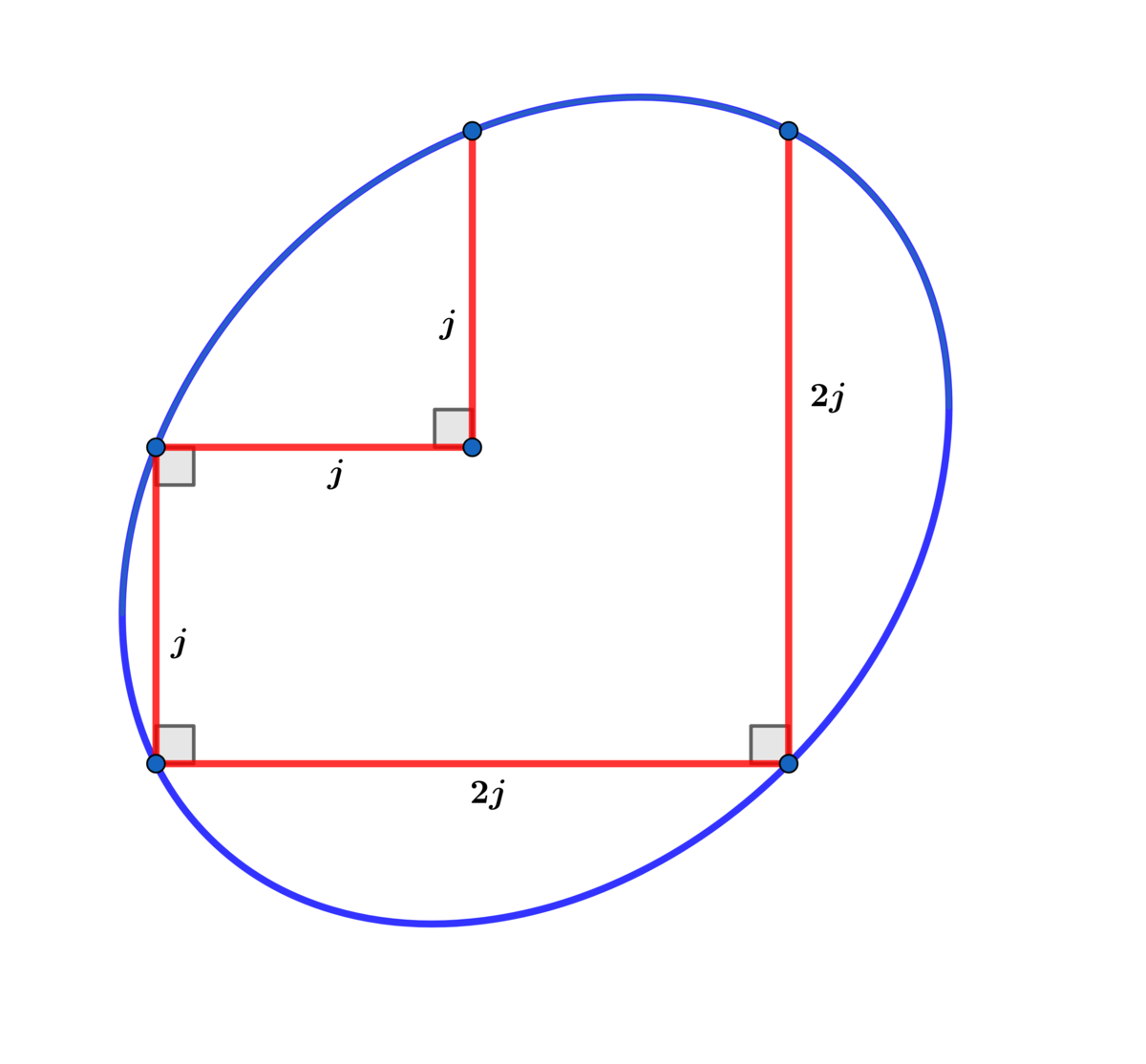Elliptical Madness.

Find the value of for which the distance from the center of the ellipse above to the focus is .
The answer is 75.
This section requires Javascript.
You are seeing this because something didn't load right. We suggest you, (a) try
refreshing the page, (b) enabling javascript if it is disabled on your browser and,
finally, (c)
loading the
non-javascript version of this page
. We're sorry about the hassle.
If the area A of the ellipse above
(1) ( j , j ) : j 2 a + j 2 b + j 2 c + j d + j e = 0
(2) ( 0 , − j ) : j c − e = 0 ⟹ c = j e
(3) 2 j , j ) : 4 j 2 a + 2 j 2 b + j 2 c + 2 j d + j e = 0
(4) ( 2 j , − j ) : 4 j 2 a − 2 j 2 b + j 2 c + 2 j d − j e = 0
Subtracting (4) from (3) ⟹ 2 j b + e = 0 ⟹ b = − 2 j e
Replacing c = j e and b = − 2 j e into equations (1) and (3) ⟹
2 j a + 2 d = − 3 e
4 j a + 2 d = − e
⟹ d = − 2 5 e and a = j e
⟹ j 1 x 2 − 2 j 1 x y + j 1 y 2 − 2 5 x + y = 0
⟹ 2 x 2 − x y + 2 y 2 − 5 j x + 2 j y = 0
Let
x = x ′ cos ( θ ) − y ′ sin ( θ )
y = x ′ sin ( θ ) + y ′ cos ( θ )
2 ( x ′ 2 cos 2 ( θ ) − sin ( 2 θ ) x ′ y ′ + y ′ 2 sin 2 ( θ ) ) − ( ( 2 x ′ 2 − y ′ 2 ) sin ( 2 θ ) + cos ( 2 θ ) x ′ y ′ ) + 2 ( x ′ 2 cos 2 ( θ ) ) + sin ( 2 θ ) x ′ y ′ + y ′ 2 sin 2 ( θ ) ) − 5 j ( x ′ cos ( θ ) − y ′ sin ( θ ) ) + 2 j ( x ′ sin ( θ ) + y ′ cos ( θ ) ) = 0
Setting x ′ y ′ terms to zero ⟹ cos ( 2 θ ) = 0 ⟹ θ = 4 π
⟹
x = 2 1 ( x ′ − y ′ )
y = 2 1 ( x ′ + y ′ )
⟹ 3 x ′ 2 + 5 y ′ 2 − 3 2 j x ′ + 7 2 j y ′ = 0 ⟹ 3 ( x ′ − 2 j ) 2 + 5 ( y ′ + 5 2 7 j ) 2 = 5 3 2 j 2
⟹ ( 1 5 3 2 j 2 ) ( x ′ − 2 j ) 2 + ( 2 5 3 2 j 2 ) ( y ′ + 5 2 7 j ) 2
⟹ a = 1 5 4 2 j and b = 5 4 2 j ⟹ c = a 2 − b 2 = 5 3 8 j = 3 1 2 0 ⟹ j = 7 5 .